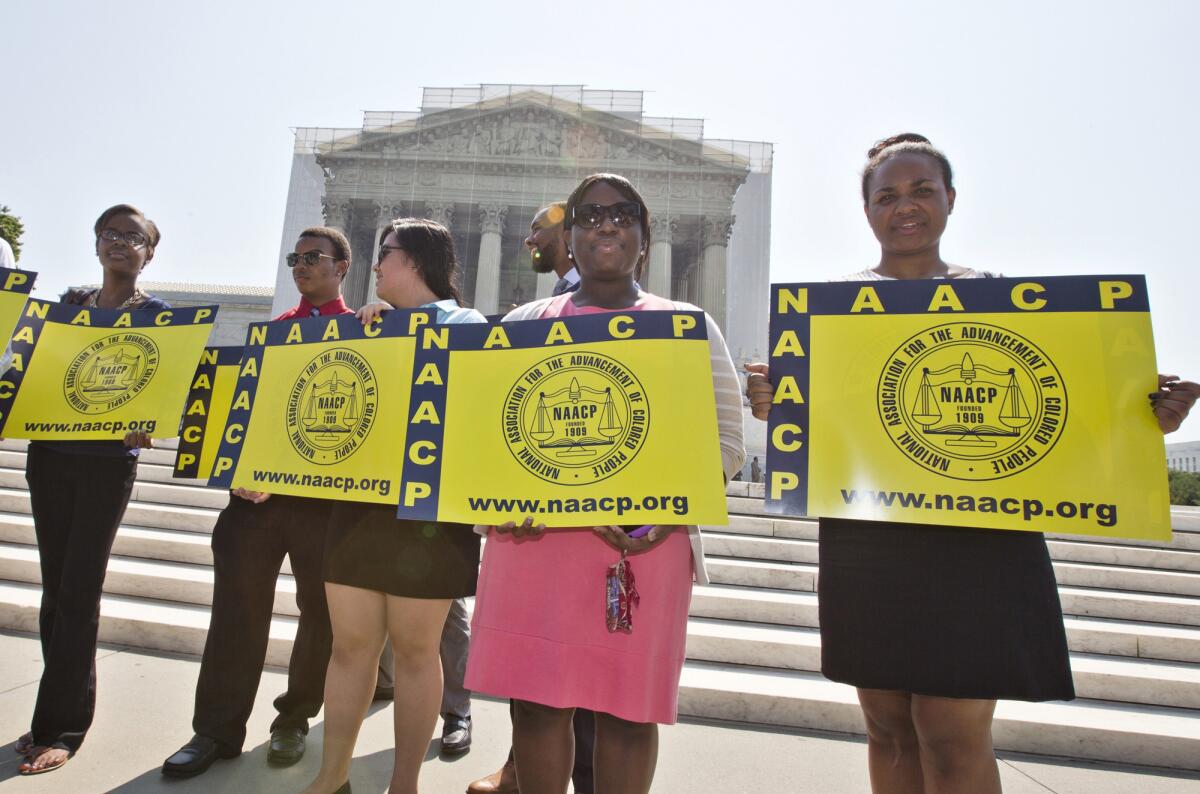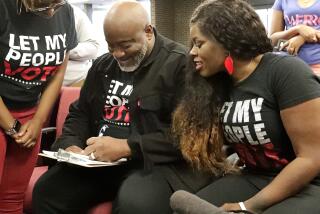Bipartisan group begins effort to restore parts of Voting Rights Act

WASHINGTON – Lawmakers announced Thursday bipartisan legislation that would restore key protections of the Voting Rights Act that were thrown out by the Supreme Court last summer.
The bill would also establish new criteria to determine whether states need to seek federal approval for proposed changes to voting rules.
The legislation is a response to the high court’s ruling in June that Southern states had been unfairly singled out by the long-standing formula used to determine which states must seek federal “pre-clearance” before changing their voting laws.
The proposed legislation would establish a new trigger. Any state that is found to have committed five voting violations over a 15-year period would be subject to federal scrutiny of any new voting laws for a period of 10 years. It would also allow states to create “reasonable” photo identification laws.
Four states would be subject to the law immediately upon enactment: Georgia, Texas, Louisiana and Mississippi.
The landmark Voting Rights Act had been repeatedly renewed by Congress since its adoption in 1965, most recently by lopsided majorities in the Republican-controlled House and Senate in 2006.
The legislation’s sponsors, including Senate Judiciary Committee Chairman Patrick J. Leahy (D-Vt.) and Rep. Jim Sensenbrenner (R-Wis.), expressed their hope that Congress could enact the law in time for it to apply to elections this fall.
“I think we have hit the gold mine here,” Sensenbrenner, a former House Judiciary Committee chairman, said at a Capitol Hill news conference announcing the deal. “This bill modernizes the Voting Rights Act, and will restore those protections that were gutted by the court, and will ensure that every citizen has an equal opportunity to participate in our democracy.”
Lawmakers timed their announcement just before Congress breaks for a weeklong recess period and Martin Luther King Jr. Day.
“It is amazing to me, it is unbelievable, it is almost unreal that we were able to come together so quickly to craft a compromise that both Democrats and Republicans can find a way to support and move forward,” said Rep. John Lewis (D-Ga.), an icon of the civil rights movement. “I will admit that it’s not a perfect bill. But it is a necessary and good beginning.”
Sensenbrenner said he had had early discussions with House Majority Leader Eric Cantor (R-Va.) about advancing the measure this year, and said he hoped that his colleagues in the House would use the recess to study the proposal.
Leahy predicted easier passage of the measure in the Democratic-controlled Senate.
Key civil rights groups also signaled their support.
“Although not perfect, this bill is an important first step,” said Sherrilyn Ifill, president and director-counsel of the NAACP’s Legal Defense Fund. “There is much more work for Congress, civil rights groups and communities to do. Our common aim is to ensure that all Americans can participate equally in the political process.”
Follow Politics Now on Twitter and Facebookmichael.memoli@latimes.com
Twitter: @mikememoli
More to Read
Sign up for Essential California
The most important California stories and recommendations in your inbox every morning.
You may occasionally receive promotional content from the Los Angeles Times.











